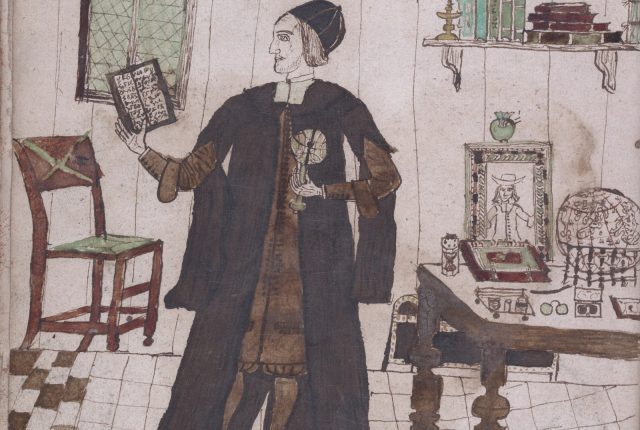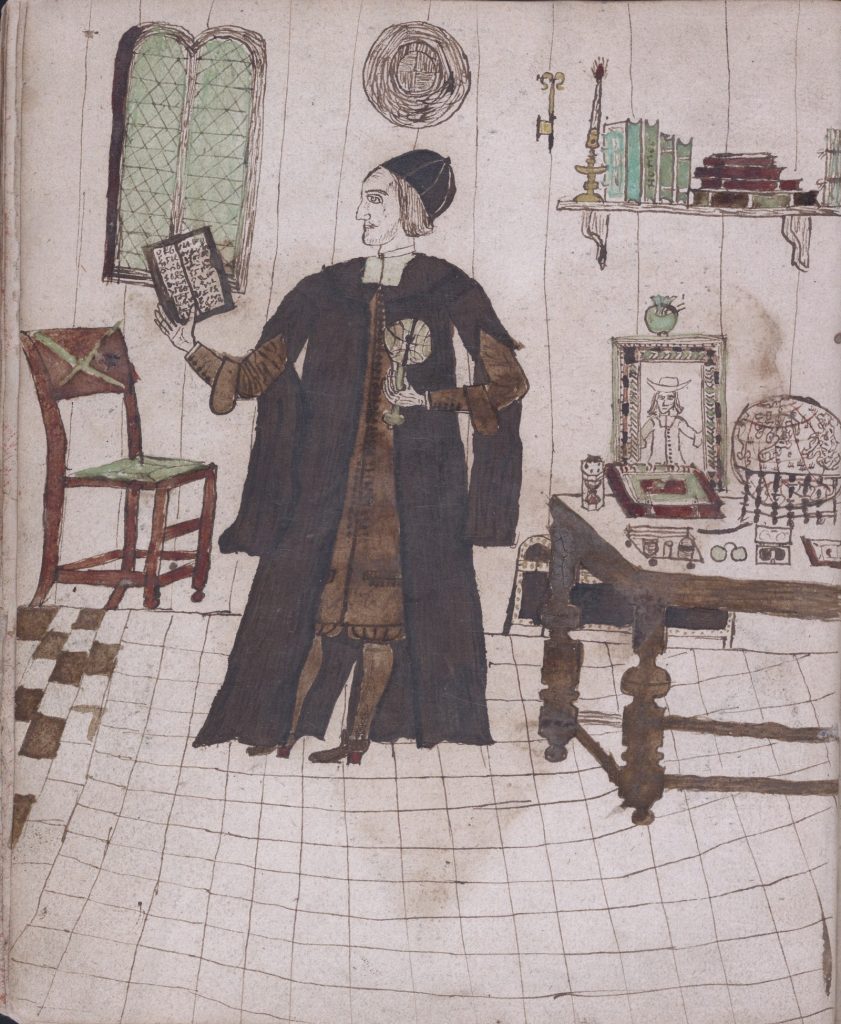
Date/Time
Friday, October 21, 2016–Saturday, October 22, 2016
All Day
Location
Lorrine Rona Lydeen Library, 4302 Rolfe Hall
345 Portola Plaza
—a conference organized by Mercedes García-Arenal, Consejo Superior de Investigaciones Cientificas; Barbara Fuchs, University of California, Los Angeles; and Carlos Cañete, Consejo Superior de Investigaciones Cientificas
CORPI (Conversion, Overlapping Religiosities, Polemics and Interaction: Early Modern Iberia & Beyond)
CSIC (Consejo Superior de Investigaciones Cientificas)
European Union Seventh Framework Programme
How was the early modern pursuit of knowledge in very different spheres conditioned by a shared desire for certainty? How did this desire in turn link the epistemological crises produced by the religious upheavals of early modern Europe with the development of new scientific methods? This conference recontextualizes the production of knowledge in the early modern period (1550–1700), focusing on the social and institutional dimensions of academic practices in light of political and cultural challenges.
The conference addresses the quest for certainty in early modern Europe in relation to religious processes, exploring how conflicts and uncertainty affected religious identities (and even the status of irreligion) and challenged traditional ways of learning. We consider how knowledge of all sorts was integrated into different cultural and religious traditions in unprecedented ways, forcing religious authorities to seek new means of controlling and regulating “truth.” Last but not least, we pay close attention to problems of representation, and to how the arts mediated and reflected on production of knowledge and its relation to religion.
Much like other historical processes, the quest for knowledge was shaped in its institutional, social, and cultural dimensions by specific contexts. Although there has been ample focus on the early modern religious and intellectual upheavals that shaped a burgeoning European “modernity,” central questions have gone unasked—much less answered—as the different disciplines have focused largely on their internal development and the concomitant debates and institutions. What has not been recognized is the major role that religious conflicts of the period played in intellectual debates and academic practices.

UPenn Ms. Codex 865
Given that these problems were shared by all denominations, we propose for this conference a comparative approach that expands our understanding of the nature of intellectual life in Europe during the early modern period. This conference focuses on the period from the mid-sixteenth century—when the effects of both religious conflicts and mass conversions where already being felt—to the late seventeenth century, a moment of religious normalization that also saw the consolidation of modern practices of learning. The conference focuses on the Iberian Peninsula and early modern Hispanic world, in comparison with broader European and colonial contexts.
Speakers
Adam G. Beaver, Harvard University
Carlos Cañete, Consejo Superior de Investigaciones Cientificas
Barbara Fuchs, University of California, Los Angeles
Carina L. Johnson, Pitzer College
Maríaluz López-Terrada, Consejo Superior de Investigaciones Cientificas
Anna More, Universidade de Brasília
Anthony Ossa-Richardson, University of Southampton
Fernando Rodríguez Mediano, Consejo Superior de Investigaciones Cientificas
John Slater, University of California, Davis
Kevin Terraciano, University of California, Los Angeles
Stefania Tutino, University of California, Los Angeles
Program
Friday, October 21, 2016
9:30 a.m.
Morning Coffee and Registration
10:00 a.m.
Mary Terrall, University of California, Los Angeles
Welcome
Barbara Fuchs, University of California, Los Angeles
Mercedes García-Arenal, Consejo Superior de Investigaciones Científicas
Opening Remarks
10:30 a.m.
Bible & Scriptural Criticism
Moderator: John Dagenais, University of California, Los Angeles
Adam G. Beaver, Harvard University
“Spanish Hebraists and the Search for the Bible, ca. 1510–1600”
Fernando Rodríguez Mediano, Consejo Superior de Investigaciones Científicas
“On the Theological Truth of Human History”
Anthony Ossa-Richardson, University of Southampton
“River and Ocean: Scriptural Ambiguity in the Counter-Reformation”
Discussion
12:30 p.m.
Lunch
2:00 p.m.
Literatures
Moderator: Bonnie L. Gasior, California State University, Long Beach
Barbara Fuchs, University of California, Los Angeles
“Trusting the ‘I’: Picaresque Confession and Early Modern Scepticism”
Anna More, Universidade de Brasília
“The Poetic Truth of Sor Juana Inés de la Cruz”
Discussion
3:30 p.m.
Coffee Break
3:45 p.m.
Epistemologies
Moderator: Anthony Pagden, University of California, Los Angeles
Kevin Terraciano, University of California, Los Angeles
“50 Questions in Search of Certainty: Spain’s Relaciones Geográficas Project and Its Discontents”
Stefania Tutino, University of California, Los Angeles
“Exploring and Exploiting Uncertainty: Moral Theology in Post-Reformation Catholicism”
Discussion
5:15 p.m.
Reception
Saturday, October 22, 2016
9:00 a.m.
Morning Coffee and Registration
9:30 a.m.
Science & Medicine
Moderator: Mary Terrall, University of California, Los Angeles
John Slater, University of California, Davis
“Trust, Commerce, and Chemical Medicine: Benito de Aste’s Clinical Trials”
Maríaluz López-Terrada, Consejo Superior de Investigaciones Científicas
“Curanderos’ CVs: Healers’ Medical Training as Told to the Inquisition”
Discussion
11:00 a.m.
Coffee Break
11:15 a.m.
Ethnographies & Identities
Moderator: Emily Berquist Soule, California State University, Long Beach
Carlos Cañete, Consejo Superior de Investigaciones Científicas
“Ambivalent Origins: On the Religious Nature of the Pre-Adamite Theory”
Carina L. Johnson, Pitzer College
“Matters of Appearance: Identity and Empire in the Sixteenth Century”
Discussion
12:45 p.m.
Program concludes
Booking Form
Bookings are currently closed for this event.

